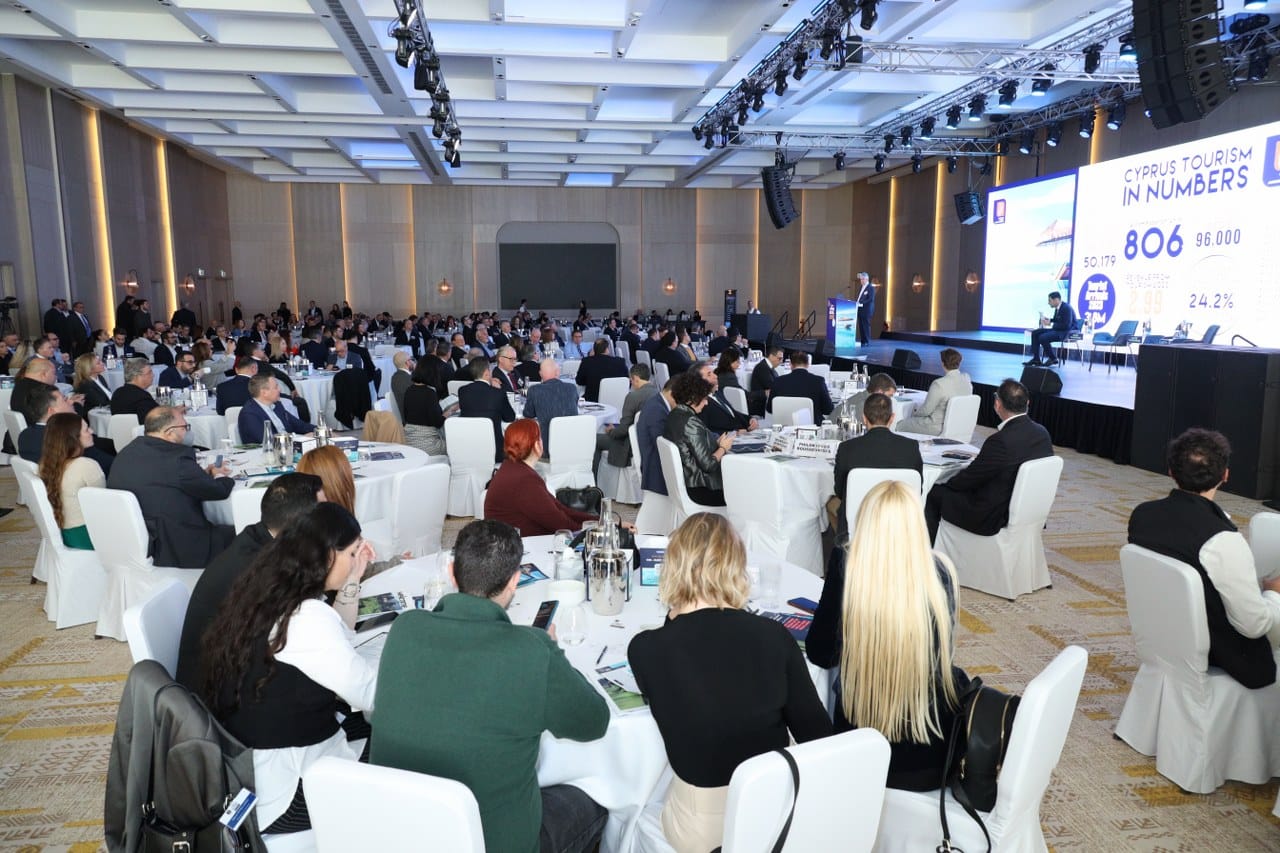Despite a record number of visitors last year, there is a growing gap between the number of arrivals to Cyprus and occupancy levels, due both to tourists going to stay in the north, and because of short-term holiday rentals that are pricing everyone out of the market, hoteliers said on Friday.
These latest issues were part of a litany of challenges laid out by Thanos Michaelides, president of the Cyprus Hotel Association (Pasyxe) at its annual conference in Limassol titled ‘Embracing the New Normal’ where he also warned that the upcoming cost of the EU’s green agenda was “beyond the reach of our industry”.
Michaelides pointed out that in the wake of the fragile recovery following the Covid pandemic, Cyprus was then hit with the loss of the Russian marker after the invasion of Ukraine, and late last year the loss of the Israeli market that could continue into the coming summer season.
Both crises were posing “significant threats to the demand for tourism in Cyprus,” he said, adding that Russia had been the second largest market after the UK. With that loss in 2022, Israel became the second-biggest market “and we are now facing the possibility of losing Israel in 2023”.
In addition to these external crises, Michaelides said there were more hurdles namely labour shortages, high interest rates, high energy costs, the move to a more sustainable model and the digital transformation.
And even though Cyprus navigated the Covid and post-Covid era, the Pasyxe president said however that it was becoming increasingly obvious that the number of tourist arrivals “did not equate to the same number of overnight stays at our hotels”.
“The figures for our occupancy rates show that there is a growing gap between arrivals and occupancy rates. The two main reasons for this are the increasing flow of tourists to the occupied areas of Cyprus and the increase in demand for unlicenced short term rental units,” Michaelides said.
He said that previous estimates in 2019 showed that 4 per cent of the total – almost- four million arrivals were going to the north. This estimate has now doubled, he said.
“Beyond the moral issue, we have unfair competition to our hotels since these hotels operate with a completely different regulatory framework and lower operating cost.” This, he added was a loss for the economy.
The other activity that was proving ever more detrimental was short-term rentals by unlicensed persons operating outside of any regulation, avoiding taxes and levies and creating significant instability in the rental market as a whole.
“We have seen rents in the popular resorts increase to the point that young couples are unable to find affordable housing, creating a social problem,” said Michaelides. He said the issue was common to many tourist hotspots and that there were examples of legislation that has been introduced to resolve the matter.
Another big problem coming down the line for the owners of tourist accommodation would be the new and costly but mandatory buildings’ regulations contained in the Cyprus Recovery and Resilience plan that are designed to reduce emissions and render buildings more energy efficient.
Michaelides said that hoteliers recognised that they need to navigate this new environment as an industry and adapt to move with the times.
“We cannot afford to be left behind and at the same time we need to evaluate what can we afford to invest in the new world towards which we are moving,” he said.
“It is imperative we set attainable goals that make financial sense and that lead us in a gradual yet surefooted path to our ultimate goal: a sustainable tourist model that continues to grow in the segment of quality tourism based on the values of Cyprus hospitality,” Michaelides added.
He said it must be acknowledged by those pushing the green agenda that most of the tourist infrastructure in Cyprus was built in the 1980’s. “The investment needed to modernise these real estate assets to meet EU environmental requirements is massive,” said Michaelides. “The investment required is beyond the reach of our industry and it cannot be passed on to our consumers. He said Cyprus was the most southeastern island of the EU, and as such was at a disadvantage in terms of accessibility vis-à-vis competitors.
“The cost of air travel to Cyprus will always be higher from the key markets and this makes the cost of a holiday in Cyprus more expensive,” he said, adding that the industry needed support both in technical assistance and financial incentives to facilitate the transition to a sustainable model in time.
Looking at the revenues from the tourist arrivals for 2023, he said they had risen above those of the benchmark year of 2019 which was a record year.
This, however, was mainly due to the inflationary trend and the tail end of the post Covid pent-up demand for travel.
While record high top line figures are a cause for celebration, he added, they don’t tell the full story.
“The financial success of an industry is the growth in its bottom line. Unfortunately, due to the disproportionate increase in operating expenses and the rise in interest rates, we have seen the profitability of our sector being hit vs the profitability of 2022 and 2019,” Michaelides said.
He called on the government and other stakeholders to seek out new markets and develop new air connections with markets that have the potential for growth to reduce dependency on the UK, Russia, and Israel.







Click here to change your cookie preferences